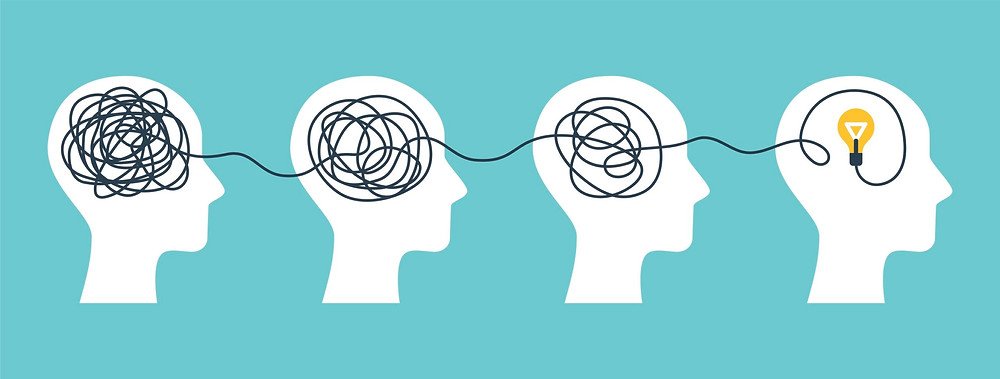Part 2: EMDR
understanding trauma
Trauma is an emotional, psychological and physiological response to an event or experience that is deeply distressing, overwhelming, and/or life-threatening. It overwhelms an individual’s ability to cope. It affects the brain, nervous system, body and behaviours in ways that can be both immediate and long-lasting — even when the event is over. Physical sensations, smells, sounds, or sights can trigger a visceral (deep feeling/emotion inside the body) reaction — without a conscious connection to the original trauma.
Affects on the Brain and Nervous System
In trauma, the nervous system may:
Stay stuck in overdrive (hyperarousal) OR shutdown (hypoarousal). It becomes stuck in ‘survival mode’ and is constantly scanning for danger. If stuck in overdrive it can present as anxiety, panic and hypervigilance. If stuck in shutdown it can present as numbness, depression and dissociation. For some people they flip unpredictably between both of these states.
Survival mode (primal survival response) is where the amygdala (fear centre) becomes overactive, triggering intense reactions to an event where there is no threat.
Survival modes include:
Fight: aggression or defensiveness
Flight: escape or avoidance
Freeze: paralysis, numbness, dissociation
Fawn: people-pleasing to stay safe
Impaired Memory & Processing: Trauma can impair the hippocampus, affecting memory formation and emotional regulation.
Dissociation: Some people disconnect from their body or surroundings as a defense mechanism (freeze response).
Cortisol Flooding: The stress hormone cortisol remains elevated, which can damage tissues and organs over time.
Adrenal Fatigue: Constant stress may exhaust the body's energy reserves, leading to fatigue, burnout, and immune suppression.
Even if someone can’t consciously recall a traumatic event, the body may remember. This is sometimes referred to as: “The body keeps the score.” – Bessel van der Kolk
Affects on the Body
Muscle tension and pain (especially in neck, shoulders, back)
Digestive issues (IBS, nausea, constipation)
Sleep disturbances (insomnia, nightmares)
Autoimmune conditions and chronic inflammation
Heart palpitations or high blood pressure
Difficulty relaxing or feeling safe
Emotional reactivity or numbing
Affects on Behaviour
The majority of people do not understand how traumatic events may still be impacting their behaviours. The role of our nervous system is to keep us safe in the moment and it responses automatically at the time of danger. It will remember to respond this way again if it feels threatened. At the time of the traumatic event, the response was adaptive however, if unresolved after the threat is gone, the habitual patterns usually becomes a maladaptive response. Avoidance: Steering clear of people, places, or feelings that remind us of the trauma. Here are some of the key behaviours of someone living with trauma based behavioural responses:
Risky Behaviours: Substance use, self-harm, reckless actions — often as attempts to cope or escape.
Hyper-independence: Believing you must do everything yourself and can’t rely on others.
Control: To feel in control of self you need to control everything around you (eg. Partner, children, work colleagues)
Emotional Dysregulation: Mood swings, irritability, or difficulty calming down after stress.
Re-enactment: Unconsciously repeating traumatic dynamics (e.g., choosing unsafe partners or jobs).
The above impacts of living with trauma can ultimately result in the following for an individual:
Loss of Identity: Feeling unsure who you are or what you want.
Fragmented Sense of Self: Feeling like a “different person” in various situations.
Shame and Self-Blame: Internalizing the trauma as a reflection of personal worth.
Trust Issues: Struggles to feel safe with others, even loved ones.
Fear of Intimacy or Abandonment: Clinginess or emotional withdrawal.
People-Pleasing or Isolation: Overcompensating to keep others happy, or shutting down altogether.
Attachment Wounds: Especially from childhood trauma, affecting how we bond with others in adulthood.
Anxiety and Panic: Constant sense of danger or unease, even in safe situations.
Depression and Hopelessness: Feeling numb, empty, or disconnected from joy or purpose.
Low Self-Worth: Feeling broken, shameful, or “not good enough.”
Trauma leaves a deep imprint on the body and nervous system, this can leave a deep imprint on an individual and their experience of life. If you can relate to anything you have read in this blog and would like to know more, please reach out. It can be possible to heal from trauma and next month I will discuss in more detail how EMDR therapy can assist in reprocessing traumatic events do they no longer have the negative impact on us.
Love, health and happiness to you all.
Cath

